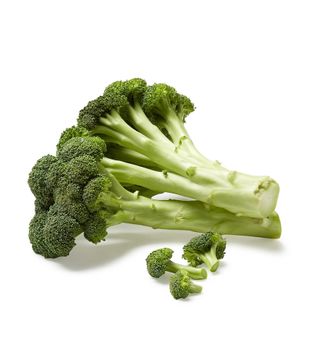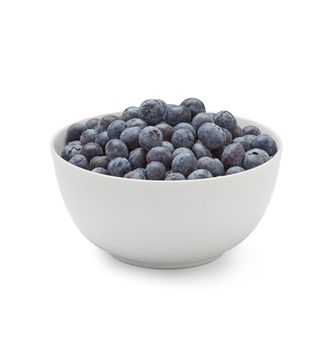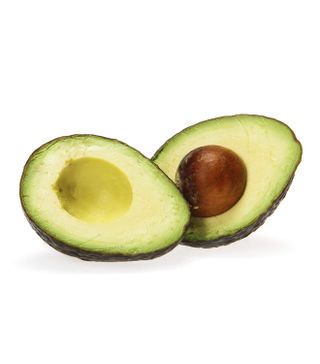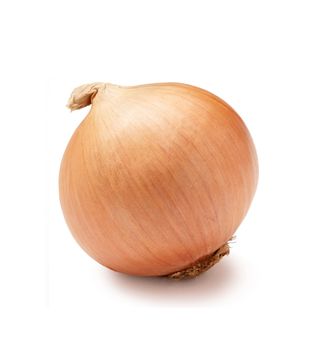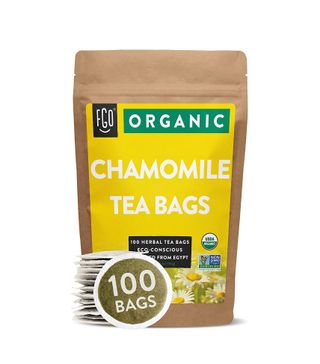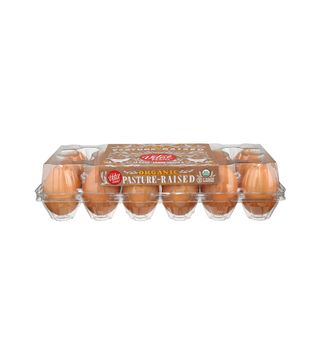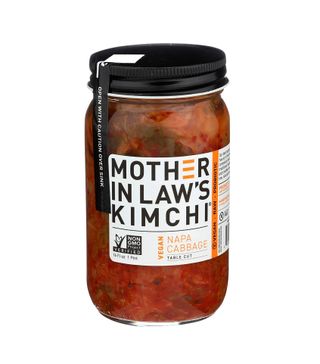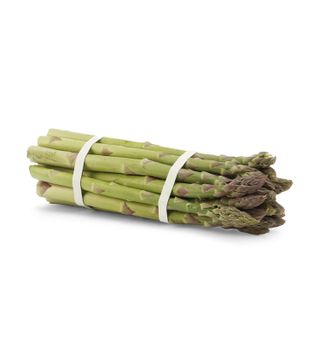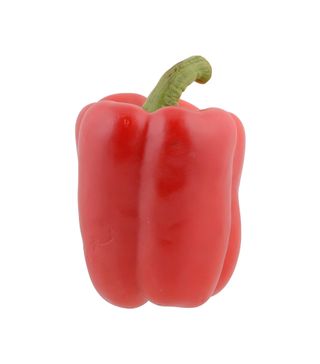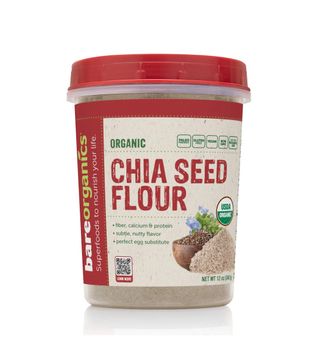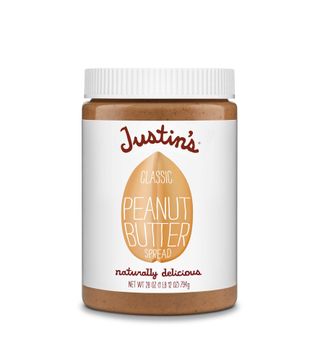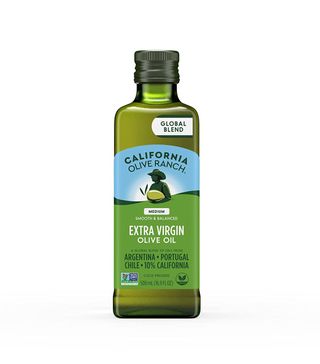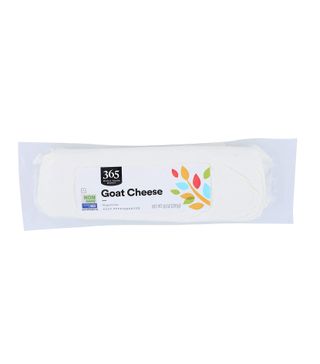These 8 Foods Are the Worst for Rosacea—Here's What to Eat Instead
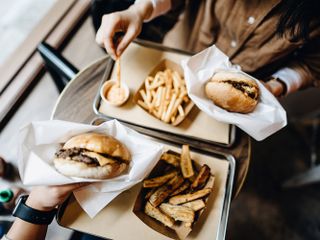
A lot of people deal with rosacea, so if you have it, you're not the only one—but that doesn't mean it's not frustrating to deal with. "Rosacea is a common inflammatory skin condition that presents as redness on the cheeks and nose," explains Ife Rodney, MD, FAAD, of Eternal Dermatology and Aesthetics. "Sometimes, you will see pimple-like bumps on the cheeks. In more severe cases, the skin thickens around and on the nose, called rhinophyma. Some people experience redness and inflammation around the eyes (conjunctivitis), leading to itchy, irritated eyes."
Alexis Parcells, MD, a board-certified plastic surgeon and founder of Sunnie Skincare, adds that it frequently occurs in people over 30 and that reports indicate that over 400 million people worldwide have it.
What Causes Rosacea?
There is no definitive answer to what causes rosacea, but there could be hereditary or environmental factors, or a combination of both, says Marisa Garshick, MD, FAAD. People with fair skin might be more likely to develop it, but it can also occur in darker skin types.
"It's a condition that typically comes and goes and appears in bouts of flare-ups that can be triggered by stress, food, diet, exercise, alcohol, climate, and other environmental and emotional factors," says aesthetician Rosie Petrillo of Âme Skin Studio. And since we don't know the exact cause, the triggers can vary from person to person. Parcells adds that while redness is often the first symptom, there are other factors to look for like hypersensitivity of the skin, causing itching, burning, stinging, and generalized discomfort.
How to Treat Rosacea
Unfortunately, there isn't a complete cure for rosacea, but there are certain things you can do to control it and avoid anything that can trigger flare-ups. Lifestyle changes can help, like eating certain foods and avoiding others, protecting your skin against the sun's harmful rays, and avoiding over-exfoliation or harsh products. Keeping your stress in check is also a must. "Stress accelerates the production of free radicals that will neutralize proteins, such as collagen, and speed up the aging process," Petrillo says. "In addition, it can worsen skin conditions that are known to be related to emotional stress, such as acne, psoriasis, rosacea, and others."
And because triggers are so personal, you're going to want to pay attention to your own. "Rosacea can be reduced through lifestyle choices, and it is important to find your triggers that may cause flare-ups," Rodney says. "Common triggers include extremes of temperature either hot or cold and eating spicy foods." Rodney suggests creating a log or diary to pinpoint what causes your flare-ups.
Certain topical and oral medications can help, as well as in-office treatments, like lasers or peels. "It is important to avoid over-exfoliation with rosacea, but one of the few in-office aesthetic treatments that can be helpful with this condition are chemical peels," says Mila Davis, an aesthetician at Skin to Smile. "Gentler chemical peels can reduce inflammation and reduce the appearance of redness. Other skin treatments, such as laser procedures, are often not recommended with patients with rosacea, as they require the application of heat, which can significantly exacerbate this inflammatory skin condition."
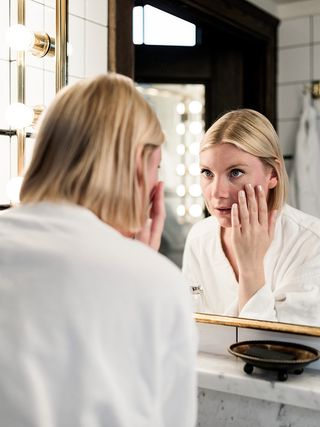
In terms of other lifestyle changes, aesthetician and founder of StackedSkincare Kerry Benjamin suggests opting for lower-impact exercises to keep sweating to a minimum if you're currently experiencing a flare-up. "If you do get sweaty, use an ice roller post workout to calm inflammation instantly," she says. "Lastly, only take warm showers, never hot showers, to avoid drying skin, impairing your barrier and causing more inflammation."
Changing up your diet can make a significant impact as well. "Eating an anti-inflammatory diet rich in colorful produce, quality-sourced protein, omega-3 fatty acids and low in added sugar can be helpful," says Kylene Bogden, RDN, co-founder of FWDfuel. "I often recommend patients keep an eating journal where we can see what they ate as well as any skin flares each day. This often helps us track patterns."
Take a look at the best foods for rosacea (and ones to avoid) below.
The Best Foods for Rosacea
1. Fish
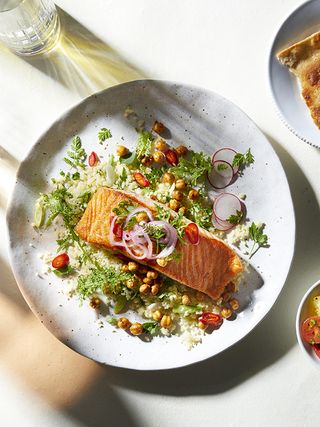
"Healthy fats including omega-3 can help manage a flare-up," says Parcells. Fish like salmon and lake trout are great sources of omega-3s.
2. Cruciferous Vegetables
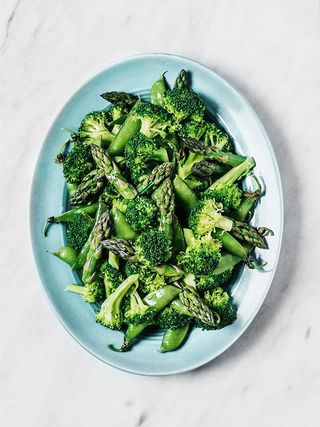
"Cruciferous vegetables such as broccoli, cabbage, and cauliflower contain high amounts of vitamin E, known for its ability to fight free radicals and enhance skin integrity, thus fighting flare-ups," says Bogden.
3. Berries
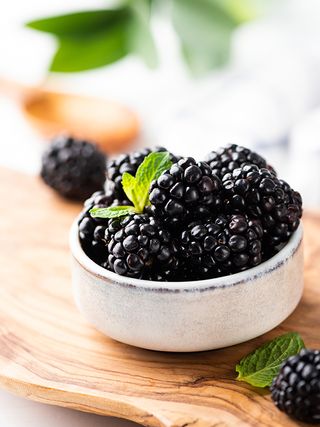
"Due to their antioxidant content, blueberries, cherries, and blackberries are said to exert a vasoconstrictive action on the body. This is beneficial when it comes to reducing inflammation in the blood vessels that are under the skin. In turn, they reduce redness," Petrillo says.
4. Avocado
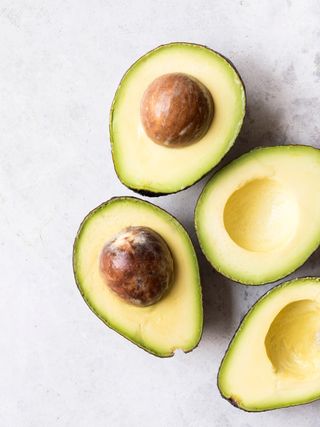
Benjamin says avocado can be helpful with inflammation—it's a healthy fat that's also rich in fiber.
5. Onions
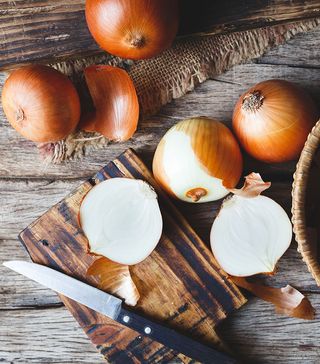
"Due to its protein, potassium, vitamin C, and flavonoid content, it is claimed that this food can contribute to skin health," Petrillo says.
6. Herbs
"Some herbs are known for their calming properties. A popular example of this is chamomile," Petrillo says. "In addition to helping to improve mood, relieve stress and anxiety, its properties also soothe the skin, so they are recommended for those who suffer from rosacea. In addition to chamomile, lemon balm, kava kava, passion fruit, and valerian are recommended."
7. Eggs
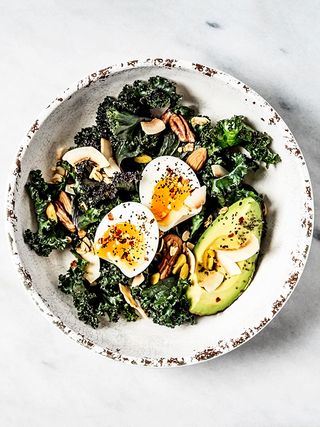
Eggs are another great source of omega-3 fatty acids.
8. Probiotic-Rich Foods
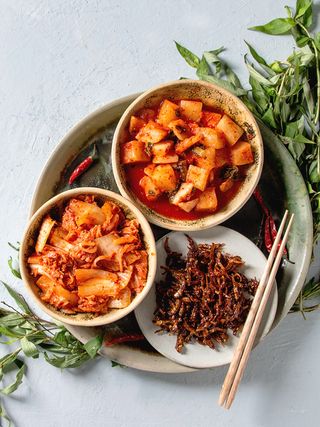
"Research suggests that probiotics and prebiotics may be effective for managing rosacea, especially in chronic patients," Garshick says. "Probiotics may help soothe inflammation and minimize rosacea symptoms and flare-ups. Probiotic foods to try include are certain cheeses, sauerkraut, miso, kombucha, and kimchi."
9. Prebiotic-Rich Foods
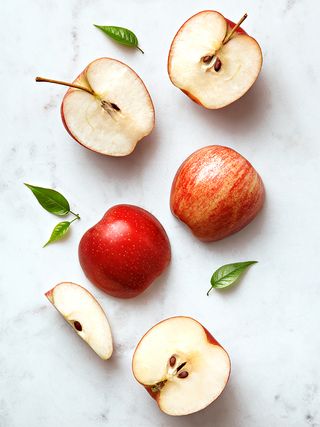
"Foods high in plant fiber, known as prebiotics, can help improve healthy bacterial growth in the gut and are helpful in the system's anti-inflammatory response," Davis says. "Foods like apples, bananas, asparagus, garlic, onions, barley, and oats are all powerful prebiotics that act to reduce inflammation."
10. Vitamin A–Rich Foods
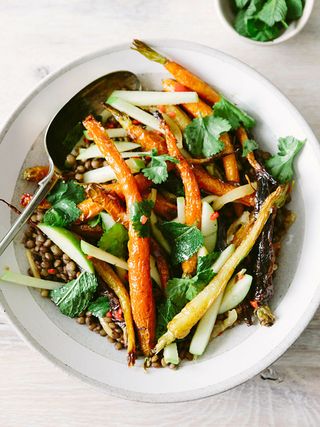
"This vitamin is essential for the well-being of our skin," Petrillo says. "Red pepper, carrot, papaya, pumpkin, and melon are rich in this nutrient."
11. Lean Meats
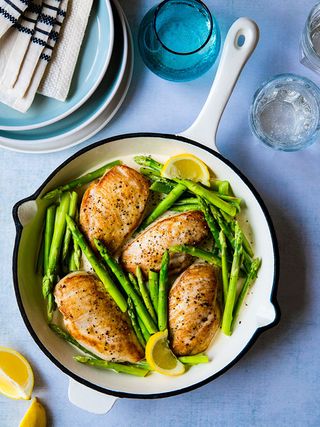
"Chicken and fish are said to be very good for rosacea because they are healthier and have less fat, which is why they help you maintain a lower body temperature," Petrillo says. "Heat is one of the triggers of this chronic disease."
12. Chia Seeds
Chia seeds are rich in omega-3s. "BareOrganics makes an awesome chia seed flour that can be conveniently added to everything from smoothies to oatmeal. Omega-3 is anti-inflammatory and keeps the skin moist, which helps to fight flaking and hyperpigmentation," Bogden says.
13. Nuts and Seeds
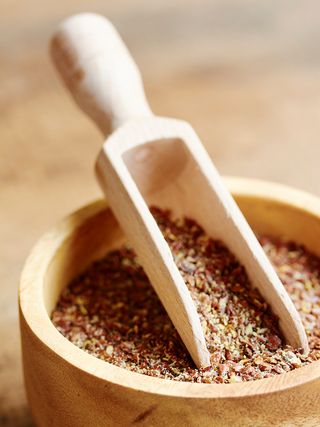
Like chia seeds, other nuts and seeds are helpful for rosacea—think walnuts, hemp seeds, flaxseeds, and peanut butter.
14. Olive Oil
"Research shows that the Mediterranean diet as a whole is the most effective in combating inflammation," Benjamin says. "This diet focuses on foods like olive oil, nuts, fruits and vegetables, legumes, whole grains, and fish."
15. Goat Cheese
Yes, you read that right—goat cheese can also help with rosacea. "Goat cheese is an excellent source of protein," Petrillo says. "In addition, it does not contain a large amount of lactose, and due to its properties, it is of great help against the skin inflammation caused by rosacea."
Foods to Watch Out For
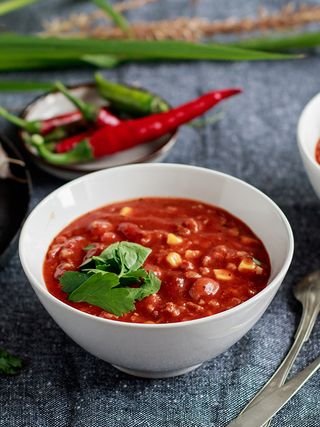
There are certain foods that might trigger a flare-up. Although it depends on your skin's own reactions, take a look at some common foods that might make your rosacea worse below.
1. Spicy Foods: Davis says spicy foods can cause an increase in body temperature, which can lead to rosacea flare-ups.
2. Alcohol: "It causes widening of the blood vessels in the face, increasing blood flow to this region," Garshick says.
3. Processed and Ultra-Processed Foods: Petrillo explains that these are high in sodium and can exacerbate all kinds of inflammation.
4. Dairy: "Dairy foods like yogurt, sour cream, and cheese are an inflammatory food that could trigger rosacea for some people," Garshick says.
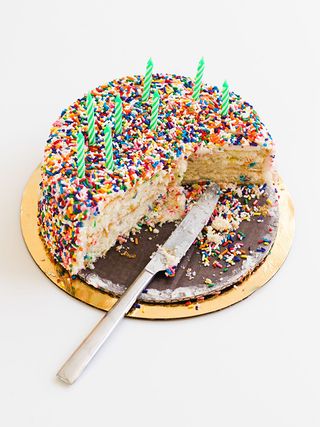
5. Chocolate: "It can cause dilation of blood vessels, leading to skin flushing," Garshick says.
6. High-Histamine Foods: "This is an organic compound that triggers an immune system response. Histamine causes vasodilation, or a relaxation of blood vessels, essentially exacerbating or making rosacea flare," Garshick says.
7. Foods Rich in Carbohydrates and Refined Sugars: "These are foods called pro-inflammatory, and in the case of rosacea, they increase the risk of triggering a crisis," Petrillo explains.
8. Hot Beverages: "Eliminating hot beverages (which also increase blood flow to the face and flushing) may improve the appearance of your skin," Garshick adds.
Skincare Products for Rosacea to Shop
The experts also recommended some products to help soothe rosacea below.
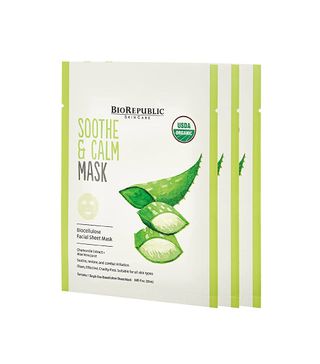
"BioRepublic's face masks are completely clean, meaning you won't find any ingredients or chemicals that will trigger skin irritation, inflammation, redness, or breakouts," Garshick says. "For example their Soothe and Calm Organic Facial Sheet Mask helps to immediately and effectively eliminate redness and irritation with active ingredients like chamomile extract, aloe vera juice, and snow mushroom extract."
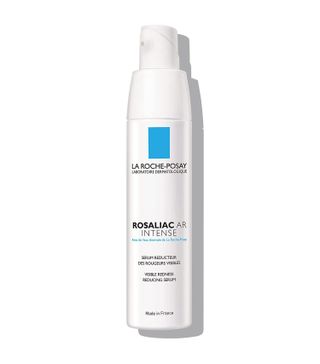
Rodney recommends this serum, which is formulated to reduce redness and soothe the skin.
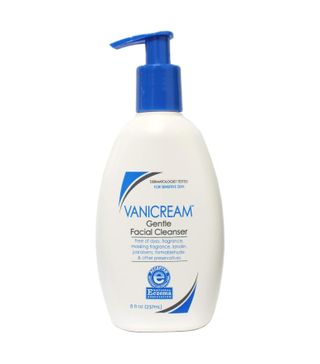
"This cleanser helps to get rid of makeup, dirt, and excess oil but is free of common irritants found in other cleansers such as fragrance, dyes, parabens, formaldehyde, and other preservatives, making it a great option for those with sensitive skin," Garshick explains. "It's gentle enough to be used every day and can remove makeup and excess oil, without drying the skin out."
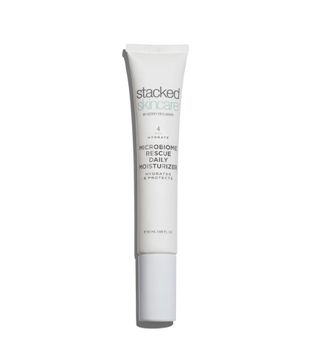
"Using humectant, ceramide, and occlusive ingredients to moisturize and protect the barrier is key to treating rosacea as well," Benjamin says. "Our Microbiome Daily Moisturizer is loaded with humectants, ceramides, and antioxidants."
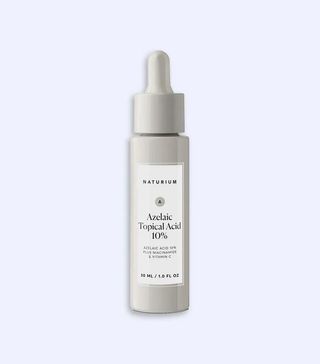
"Using the same ingredient found in a commonly used prescription for rosacea, this azelaic acid serum works to reduce bumps associated with rosacea as well as redness and inflammation," Garshick says. "This creamy and lightweight emulsion absorbs easily and also contains niacinamide, so it is soothing and won’t leave the skin feeling irritated."
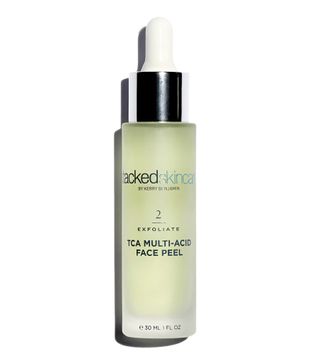
Benjamin suggests exfoliating with multi-acid peels to remove dead skin, calm inflammation and redness, control oil production and acne, and hydrate the skin.
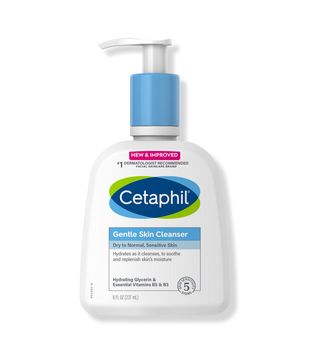
"People with rosacea have sensitive skin, so gentle cleansers are best," says Rodney, who suggests using this product.
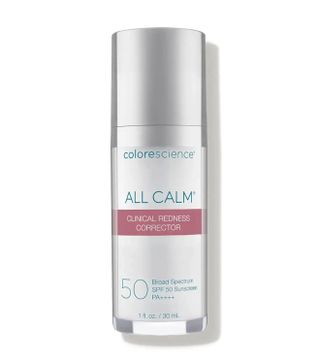
"This cream works to reduce redness and calm the skin in addition to providing SPF 50 coverage. It contains a patent-pending Biosolace complex, which helps to relieve sensitivity or irritation," Garshick says.
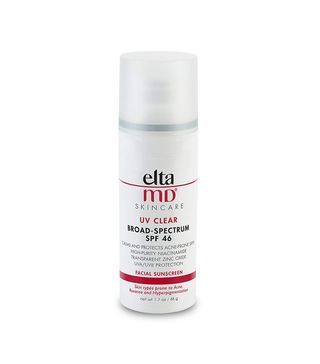
Rodney recommends this sunscreen, which will provide you enough UV protection and also moisturizes the skin, clears pores, and reduces shine.
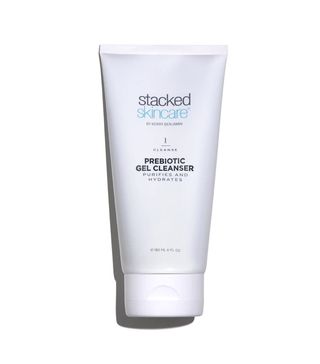
"I recommend very gentle products to people with rosacea in order to quell redness and prevent further irritation," Benjamin says. "Use a gentle cleanser that is pH-balanced to avoid stripping your skin of its natural oils. Our Prebiotic Gel cleanser feeds your good bacteria on your skin and has soothing B5."
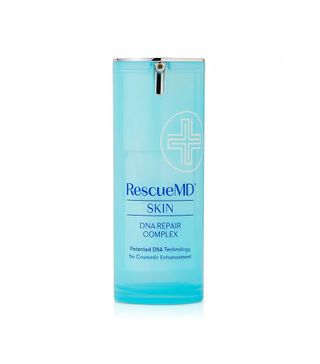
"Remember that your skin is sensitive, and therefore it must be treated with care. So opt for products with a short ingredient list that also boosts hydration levels and repairs a damaged skin barrier," Petrillo says. "This multi-benefit serum provides an all-encompassing solution with DNA-repairing patented lapachol and Collaxyl peptides to trigger new collagen production. Soothing antioxidants and silky moisturizers strengthen the walls of blood vessels and reduce edema."
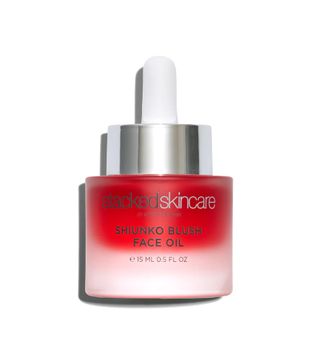
"Our fermented face oil seals and protects from TEWL (transepidermal water loss) and has both anti-inflammatory and anti-redness active ingredients," Benjamin says.
Next, Put Down the Products—Here's How to Naturally Tighten Your Skin
Disclaimer
This article is provided for informational purposes only and is not intended to be used in the place of advice of your physician or other medical professionals. You should always consult with your doctor or healthcare provider first with any health-related questions.
Sarah is lifestyle writer and editor with over 10 years of experience covering health and wellness, interior design, food, beauty, and tech. Born and raised in Los Angeles, she attended New York University and lived in New York for 12 years before returning to L.A. in 2019. In addition to her work on THE/THIRTY and Who What Wear, she held editor roles at Apartment Therapy, Real Simple, House Beautiful, Elle Decor, and The Bump (sister site of The Knot). She has a passion for health and wellness, but she especially loves writing about mental health. Her self-care routine consists of five things: a good workout, “me” time on the regular, an intriguing book/podcast/playlist to unwind after a long day, naps, and decorating her home.
-
 This Founder Shares Why We Should Start Celebrating Rest
This Founder Shares Why We Should Start Celebrating RestBurnout is nothing to be proud of.
By Kia Topps
-
 I Asked J.Lo's Trainer for His Very Best Fitness Tips
I Asked J.Lo's Trainer for His Very Best Fitness TipsGunnar Peterson has thoughts on how to get moving this season.
By Kia Topps
-
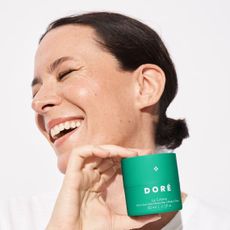 This Style Influencer Turned Founder Shares Her Favorite Ways to Start the Day
This Style Influencer Turned Founder Shares Her Favorite Ways to Start the DayA morning routine from London.
By Candice Aman
-
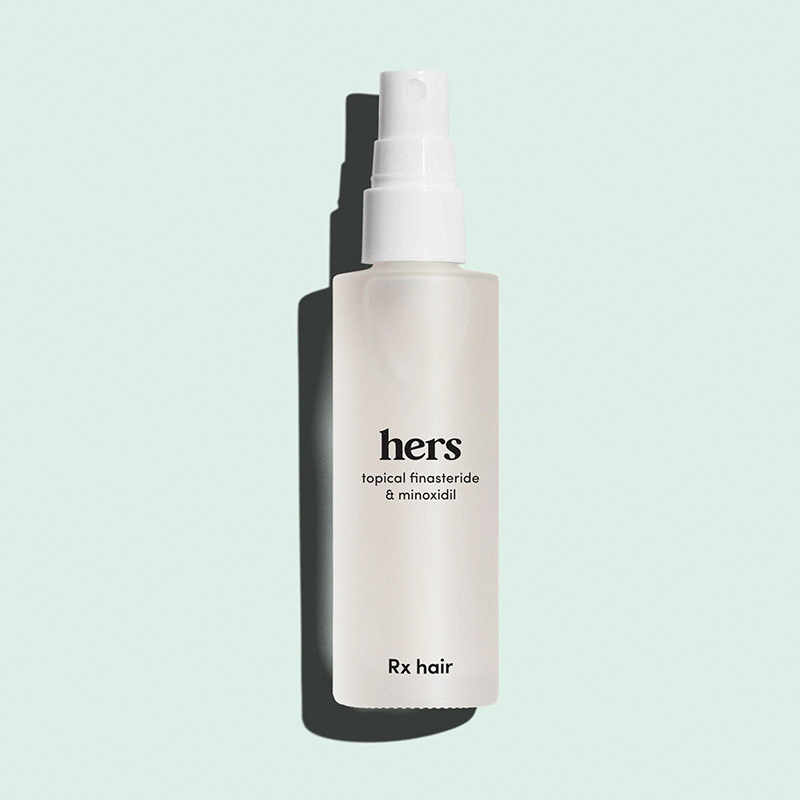 13 Products That Will Step Up Your Self-Care Game From Home
13 Products That Will Step Up Your Self-Care Game From HomeGet that glow from within.
By Natalie Gray Herder
-
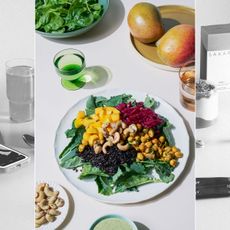 I Only Ate Sakara Life Meals for 30 Days—Here Are 7 Things That Happened
I Only Ate Sakara Life Meals for 30 Days—Here Are 7 Things That HappenedThe brand's 30-Day Fall Reset is finally here.
By Erin Jahns
-
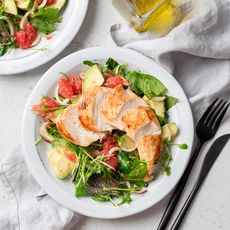 The 6 Warning Signs You're Not Getting Enough Protein
The 6 Warning Signs You're Not Getting Enough ProteinAnd what to eat to up your intake.
By Sarah Yang
-
 Everything This Professional Ballet Dancer Eats to Fuel Her For Performances
Everything This Professional Ballet Dancer Eats to Fuel Her For PerformancesHer grocery staples include high-quality French butter.
By Candice Aman
-
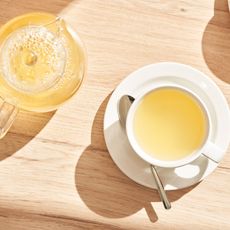 15 Things That Cause Bloating and How to Get Rid of It ASAP
15 Things That Cause Bloating and How to Get Rid of It ASAPTry these.
By Sarah Yang
